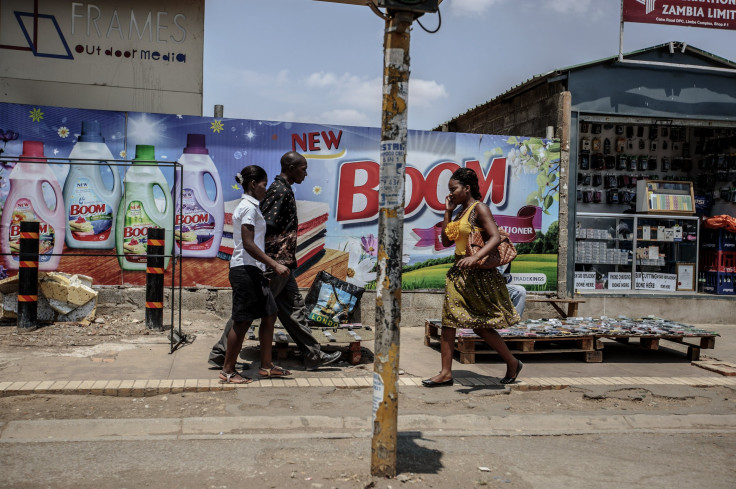Scottish Actress Louise Linton’s Memoir About Gap Year In Zambia Draws Scorn, Ridicule

The publication of Scottish actress Louise Linton’s memoir, in which she describes the time she spent in Zambia as an 18-year-old in 1999 has not gone down well with many Zambians. Days after Linton’s article “How my dream gap year in Africa turned into a nightmare” — in which she promotes her book “In Congo’s Shadow” — was published in the Telegraph, angry Zambians have taken to Twitter, using the hashtag “LintonLies” to accuse her of fabricating several claims, perpetrating stereotypes about Africa and of exhibiting a "white savior complex."
#LintonLies we are about to enter this town that has a population of 80 rebels,pray for us @LouiseLinton pic.twitter.com/m0o6BsgQ4d
— Chishala Chitoshi Jr (@geshgroove) July 5, 2016
Taking care of Zimba, while dodging Rebels,& wildlife close calls in Africa's darkest jungles of Zambia. #LintonLies pic.twitter.com/iSDs0JO9x1
— Lusé Fiasco (@Skip_toMyLu) July 4, 2016
The only thing missing from @LouiseLinton jungle caper was Tarzan swinging to her rescue ___ #LintonLies
— Masuka Mutenda (@MasukaMutenda) July 4, 2016
In the book, which she self-published in April, Linton claims that she got caught up in the Congolese war of the late 1990s when the conflict spilled over to neighboring Zambia. She writes about her experience as the “central character” in the events that took place when “armed rebels” invaded the village she was living in.
“I couldn’t imagine the awful, sporadic acts of violence that were being committed as the village was ransacked. Fear and anger for the children consumed my thoughts. Part of me wanted to jump up and make it all stop, but then I heard shrill screams and shrank back into my hiding place,” she wrote in her article for the Telegraph. “As the night ticked interminably by, I tried not to think what the rebels would do to the ‘skinny white muzungu with long angel hair’ if they found me.”
"Mzungu" is a Bantu language word for a white person.
Linton’s claims of bonding with “a smiling gap-toothed child with HIV whose greatest joy was to sit on my lap and drink from a bottle of Coca-Cola” also spawned a parody Twitter account in the name of Zimba — the child’s purported name.
I will never forget the generous gift of Coke Lite that has sustained my family till I was ready for marriage #LintonLies
— Zimba (@LittleZimba) July 5, 2016
Rueese taught me basic English words like oh em gee, tots and obvi to help me and my family negotiate with the rebels #LintonLies
— Zimba (@LittleZimba) July 5, 2016
Responding to the backlash, Linton, who now lives in California, said she was “genuinely dismayed” that she had offended people.
“I wrote this book with the hope of conveying my deep humility, respect and appreciation for the people of Zambia and my sincere hope of making a positive impact there as an 18-year-old volunteer in 1999,” Linton said. “My aim has only ever been to honor Zambia and to share the experience I had there as a means of reminding people to care more deeply about the challenges people face in other regions.”
© Copyright IBTimes 2025. All rights reserved.






















